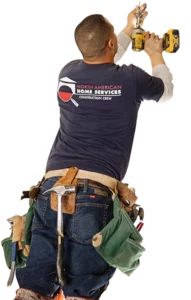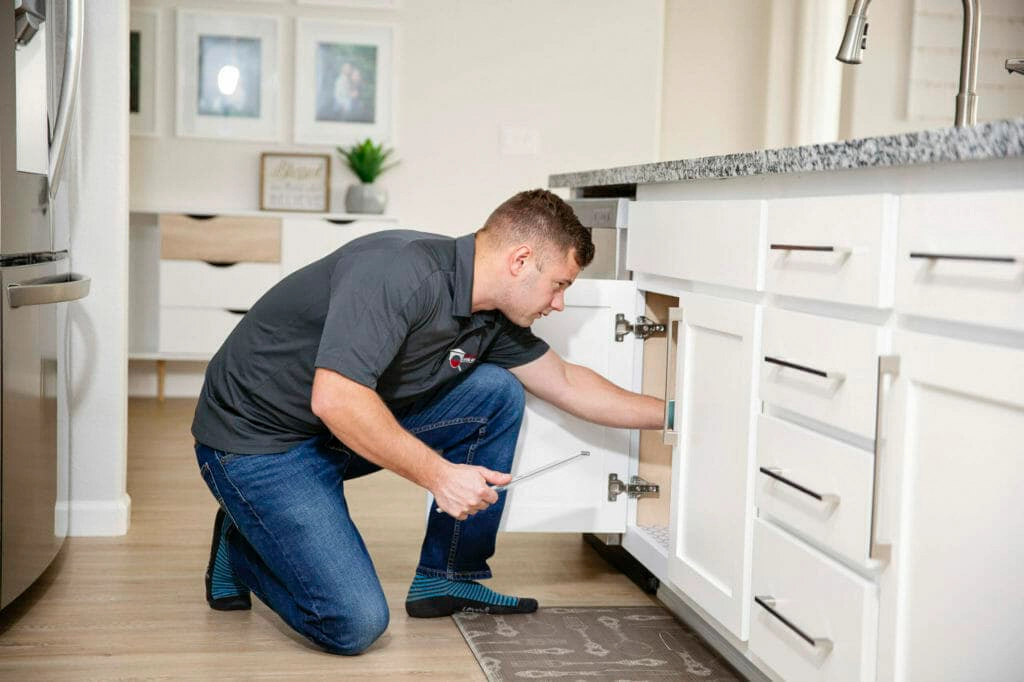Buying a home can be challenging—staying within your budget while balancing your needs and your wants is not always easy. When you do find the perfect home, submitting an offer, waiting to hear back from the sellers, and negotiating the final price can make the process long and arduous.
But then, finally, you get the keys to your new home! And it is everything that you wanted—until you find signs of a previously undiscovered termite infestation, or you notice dry rot or wet rot affecting the very structure of your home, or find some other costly repair that you just didn’t know about when you signed on the dotted line.
You can avoid costly repairs when you make the home sale contingent on a professional home inspection.
While scheduling a pre-purchase home inspection may seem like a given, it’s actually not required by law. You may feel pressured to forgo the inspection in order to expedite the process and make your offer more competitive. However, not hiring a home inspector before completing the sale is risky.
A home inspector is qualified and trained to find evidence of structural issues. Fixing these issues can be really expensive—buying a home without a home inspection means that you will be on the hook for all the repairs.
On the other hand, buyers can leverage the home inspection process to their advantage. A home inspection can be classified as a contingency in the purchase contract, stipulating that a buyer can walk away from the deal if a home inspector uncovers issues with the home. Most sellers won’t balk at agreeing to the sale contingency, as it is common to include them in the purchase contract.
As the buyer, you’ll have to pay for the home inspection. That’s a tiny price to pay considering the money you stand to save if the inspector uncovers major issues.
The home inspector will perform both an exterior and interior inspection and provide you with a comprehensive inspection report detailing their findings.
The home inspection process is exhaustive, providing both the seller and the buyer with an overview of the home’s condition.
The interior inspection will assess the following:
Plumbing: Plumbing issues are costly and can take a professional plumber weeks to repair. The inspector will identify the types of pipes in the home, attempt to determine their age, and document if they need replacing.
Electrical: A home’s electrical system should be in proper working order. Some homeowners attempt DIY fixes, which can create a risk of electrical shock or fire. The inspector will check electrical wires and outlets and the electrical panel for any issues.
Heating, Ventilation, and Air Conditioning (HVAC): HVAC systems can leave you saddled with significant repair costs if broken. An inspection will reveal the condition of the HVAC system, as well as the home’s ducting and insulation, and detail whether any repairs are required.
Appliances: Old, dated appliances can be expensive to replace, and the way they were installed could pose a threat to the home or to the home’s occupants. Home inspectors will go through the appliances and check their condition, and may also check if they are installed properly.
Windows, walls, and ceilings: Like older appliances, old, single pane windows may pose a noticeable issue that your home inspector will point out. They will also check the walls and ceilings to ensure the basic interior structure of the home is in proper shape.
A thorough inspector will also assess the laundry room, checking for leaks and proper ventilation.
The exterior inspection consists of:
Walls: The inspector will look for damage, including cracks or excessive wear spots. Some problems may threaten the structural integrity of the home, requiring immediate repair. If there are issues that are mainly cosmetic, the inspector will point them out on the inspection report.
Foundation: The foundation is one of the most structurally important parts of a home. Just as with the walls, your home inspector will look for cracks and try to determine if any damage they uncover threatens the home.
Roof: A damaged or aging roof is expensive to replace, costing upwards of $18,000 depending on size and materials. The inspector will report on broken or cracked roofing materials, and check for other damage that may cause leaks. They will also check gutters and assess the general quality of roof installation.
An inspector may also inspect the garage, if there is one, and the grading of the home to determine if it slopes away from the structure.
As you can see, a home inspection is very detailed. It can uncover previously unknown issues that even the sellers were unaware of. Once the inspection is complete, you will be provided a final inspection report that describes the inspector’s findings and recommended repairs. You will only get to take advantage of this pre-sale inspection if you opt to include a home inspection contingency in the purchase contract. Otherwise, you could be buying a home that needs a number of costly repairs.
Who pays for home repairs, the buyer or the seller?
If you’re interested in reading more in-depth about who pays for what after an inspection, you’re in luck! Read our blog: Who Pays For Repairs After A Home Inspection?
Here’s the short of it:
It’s likely that there will be a number of issues noted on the inspection report, though some may be relatively inconsequential compared to others. Obviously, as the buyer, you don’t want to pay for any repairs out of pocket.
The inspection contingency means that you can avoid paying for any repairs. If you think the condition of the home is such that it is no longer worth buying, then you can probably walk away from the sale no questions asked.
The inspection contingency can also give you negotiating power. If there are necessary repairs and you still decide to pursue the sale, you can attempt to renegotiate the final sale price or ask the sellers to include a cash credit at closing. Again, if the sellers decide not to budge, then you can opt to walk away.
You should consider including an inspection contingency when you agree to buy a home. It can save you thousands of dollars in repairs, or allow you to opt out of the purchase altogether. When you need a thorough home inspection, contact North American Home Services! Our experienced inspectors will provide you with a detailed inspection report that can help you make a more informed buying decision.




